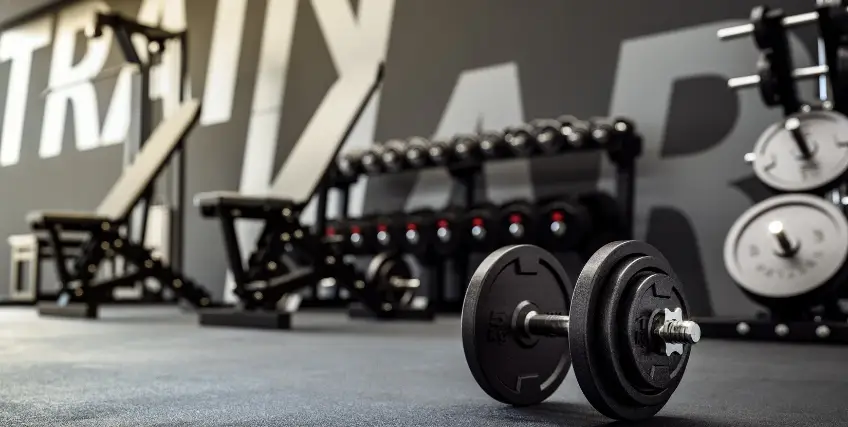Looking for Business Financing?
Apply now for flexible business financing. Biz2Credit offers term loans, revenue-based financing, lines of credit, and commercial real estate loans to qualified businesses.
Set up a Biz2Credit account and apply for business financing.
Small businesses in the US often rely on equipment lending to overcome business expansion and growth challenges. The equipment secured through lending ensures that hardware limitations do not cut off the production capacity of the business when most required. Similarly, computer technology and IT infrastructure also count in equipment. Poor internet connection, or underpowered machines can mean missed opportunities, and low order fulfillment rates. This stains the brand image of the small business and breaks future prospects.
However, by eliminating such problems with equipment financing solutions, small business owners can ensure their growth remains uninterrupted. Today, there are several options to avail equipment lending and payback in affordable monthly payments.
For a better understanding of how equipment lending works and the financing solutions it covers, we have created this comprehensive guide.
What is Equipment Lending?
Equipment lending or financing provides small business owners a convenient way to obtain business equipment, be it industrial machinery, computer hardware, kitchen equipment, medical equipment or any other working capital, without a high upfront payment. Meaning, instead of investing heavily in costly machines, business owners can purchase the required equipment to fulfill their business needs with a small downpayment and use other funds in more important areas.
Key Benefits of Equipment Lending
No Heavy Upfront Payment
Lower Interest Rates
Possible Tax Benefits
Protects your Line of Credit
Flexible Repayment Terms
Business owners need to make their monetary decisions very wisely. Instead of overspending in purchasing costly equipment, they can opt for equipment lending and obtain the same equipment only with a small downpayment.
In equipment financing, the equipment itself acts a collateral, which safeguards the entire equipment for the lender, leading to typically lower interest rates. A wide majority of times, small businesses can even get fixed rates on equipment lending.
Business equipment financing can be counted as a deductible in taxes, which lowers the overall tax liability of the business. However, the rules and deductions vary from region to region. A tax consultant can provide with accurate figures that are applicable in your market region.
Certain banks allow you to finance business equipment without depleting your line of credit. This is because the equipment itself acts as a collateral. In case of a default, the bank can easily recover damages by seizing the equipment. Your credit line remains safe.
Money lenders and banks may provide flexible repayment terms. As a business owner, you can decide how much down payment you want to make, how much loan you want to take, or how long do you want to structure your repayment. This flexibility immensely helps startups who can purchase new equipment while maintaining cashflow.
What Type of Equipment Can I Finance?
Small businesses in any industry or niche market can finance any type of equipment. We can categorize business equipment financing in the following categories:
By Usage
By Industry
Industrial machinery
Heavy equipment
Material Handling equipment
Mining equipment
Kitchen equipment
Medical equipment
Agricultural equipment
3D Printers
Computer hardware
Specialized machinery
Commercial vehicles
Power tools
HVAC appliances
Equipment leasing can be availed for both new and used equipment. New equipment comes with a longer lifespan, being a safe collateral for banks. It has lower interest rates as well. In comparison, the general lifespan of used equipment is low, which makes its interest rates slightly higher. Nevertheless, based on your business needs, you may find the overall cost of ownership for used equipment quite low, and can make a decision on whether you want finance new or used equipment wisely.
As we've already discussed above, small businesses in any industry and niche can opt for equipment industries. These include but are not limited to:
Types of Equipment Lending
Equipment lending includes several financing options. These may not necessarily be business loans. Here's a closer look.
Equipment Loans
Small business equipment loans have highly competitive interest rates
Provide flexible repayment terms
After repayment, business owners get complete ownership of the equipment
Easy and convenient option to purchase business equipment without a heavy upfront payment
Show up on your business credit line
Business owners cannot skip monthly payments. Any defaults get reflected in the credit score
Equipment Leasing
Does not show up on business credit line
Suitable for specialized or short-project equipment that are only required for small duration of 2-3 years.
Business owners don't get the ownership of the equipment. After the lease ends, the equipment goes back to the manufacturer
Monthly payments are costlier in equipment lease in comparison to loan.
SBA Loans
SBA 7(a) loans for larger working capital and investment needs, such as real estate, and large-scale business equipment, etc.
SBA 504 loans, which are unsecured business loans up to $50,000.
Vendor Financing
Revenue Based Financing (RBF)
Equipment loans include borrowing money from banks and lenders on a fixed term and using this loan amount to purchase equipment. As time passes, business owners repay the loan in small monthly investments. These are basic financing options that business owners can avail to get competitive rates with longer repayment schedules. After repaying the loan, business owners get complete ownership of the equipment. However, the eligibility for equipment loans at each lender varies. While some may approve your loan on lenient terms, others may require a stronger credit score in their application process.
Benefits of Equipment Loans
Cons of Equipment Loans
Equipment lending also includes the leasing option. Meaning, instead of taking a loan from a bank or a money lender, business owners enter into a lease contract with direct manufacturers or equipment financing companies. They get to use the equipment for a fixed duration in exchange for some monthly payment. The payment options vary in each company but helps businesses with their financing needs.
Pros of Equipment Leasing
Cons of Equipment Leasing
The Small Business Administration of USA provides federal loans that can be used for equipment lending. It primarily partners with banks and equipment financing companies to help small business owners with their equipment purchases and other business financing needs. The two popular SBA loan types are:
The eligibility requirements for SBA loans include a good credit score, stable annual revenue, and US registration.
Vendor financing is business banking where a private firms offer direct financing programs for new equipment. These options are suitable for equipment lending and often available at the time of new purchase. Vendor financing also bypasses the tiresome application processes, follows standardized interest rates, and is a suitable option for business owners who have a stable income and can easily afford monthly payments.
RBF is a financing option that includes exchange of funds in return for a percentage in monthly gross profit. The key benefit of revenue-based financing for equipment lending includes easy repayment and low debt-to-income ratio. Small business owners repay in proportion to their business growth.
Tips to Qualify for Equipment Lending
For business owners who have proactively maintained their credit score and business financing, securing equipment lending is not a hassle. However, if you are a startup, or have already taken debt, the following tips can help you out:
Increase Credit Score: You can work on your credit score with timely monthly repayments and freeing up some portion of your credit line. Several equipment financing companies refer borrowers with a solid credit history (670 or above).
Reduce Debt-to-Income Ratio: If possible, try to settle your current loans, or opt for an appropriate loan amount. Higher amount may decrease your chances of approval.
Business Documentation: Always keep record of all your business documentation. Equipment lending companies prefer stable income, and proper documentation will help you prove the same.
Down Payment: Although the equipment itself acts as a collateral, if you can afford to make a down payment, do it. Making a down payment means showing your good faith to lenders, while also reducing their risk.
For Strict eligibility: When applying for SBA-backed loans, they may involve stricter eligibility checks, including location, industry type, and business credit history. This requires you to prepare even solid business documentation, including all previous tax statements, funding statements, and even any invoice financing or purchase order financing bills.
Tips for Choosing the Right Equipment Lending Option
Not all equipment lending options are suitable for you. Here are some tips to choose the right equipment lending option.
Compare lenders: Along with comparing equipment lending options, compare lenders as well. Look for the best equipment financing companies with transparent fee structure.
Check credentials: Make sure your equipment lender is a Member FDIC, Equal Housing Lender, and listed with NMLS for regulatory compliance.
Study repayment terms: Before finalizing any equipment lending options, see if the lenders offer competitive rates, flexible loan terms, and financing solutions that fit your business needs.
Ask about used equipment: Many equipment financing companies also provide loan options for used and preloved equipment. You can consider those companies as well.
Consider Loan vs Financing: For startups, term loans may offer a higher risk profile. Consider opting for other financing options, like microloans, small business loans and even revenue-based financing.
Final Thoughts
Small businesses often face equipment shortages, and to fulfill that shortage, it is wiser to opt for equipment lending. Not only equipment lending helps you speed up productivity, but it also helps you get a revenue boost and re-invest the money in production capacity or towards marketing. You can compare multiple equipment lending options and go for the one that offers you the minimum risk. Some of these options include SBA loans, vendor financing, and revenue-based financing.
FAQs about Equipment Lending
1. What is business equipment financing?
Business equipment financing offers way to purchase essential business equipment like heavy equipment, material handling equipment, equipment machinery, IT infrastructure, etc. without any heavy upfront payment.
2. How does equipment financing help small businesses?
Equipment financing supports business growth by freeing up working capital for other business expenses. Instead of draining funds, business owners can easily spread costs over time. Therefore, equipment financing keeps cash flow stable and ensures business owners can invest in other areas of their operations.
3. What types of equipment can be financed?
Lenders usually finance both new equipment and used equipment that has a reliable useful life. Some of the common examples of equipment that can be financed include medical equipment, construction machinery, vehicles, and technology. Moreover, different financing options vary depending on business needs and lender programs.
4. What is the difference between equipment leasing and an equipment loan?
In equipment loan, you own the equipment once you repay the entire amount and the loan term ends. Whereas equipment leasing offers flexibility with lower monthly payments. In this option, businesses can return, upgrade, or purchase the equipment at fair market value after lease.
5. Which are the best equipment financing companies?
Because of different offerings, it is difficult to call any company the best. We suggest you shortlist a few equipment lending companies, compare their approved loan amounts and repayment plans to make a well-informed decision.




